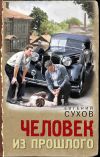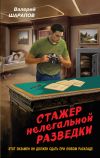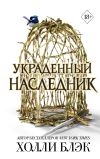Текст книги "The Mystery of the Sea / Тайна моря"

Автор книги: Брэм Стокер
Жанр: Исторические приключения, Приключения
Возрастные ограничения: +16
сообщить о неприемлемом содержимом
Текущая страница: 17 (всего у книги 31 страниц)
Chapter XXXI. Marjory's Adventure
As I felt that time, in which I had the passage all to myself, was precious, I turned back to the main way down. The path was very steep and low and the rock underfoot was cut in rude steps; as I held the lantern before me I had to droop it so that I could smell the hot metal where the flame touched the back. It was indeed a steep and difficult way, made for others than men of my own stature. As I went, I felt my first fears passing away. At first I had dreaded a lack of air, and all sorts of horrors which come to those who essay unknown passages. There came back to my recollection passages in Belzoni's explorations in the Pyramids when individuals had got lost, and when whole parties were stopped by the first to advance jamming in a narrow passage as he crawled along on his belly. Here, though the roof came down in places dangerously low, there was still ample room, and the air came up sweet and cool. To any one unused to deep burrows, whether the same be natural or artificial, there is a dread of being underground. One is cut off from light and air; and burial alive in all its potential horrors is always at hand. However, the unexpected clearness and easiness of the way reassured me; and I descended the steep passage with a good heart. All distance underground seems extravagantly long to those unaccustomed to it; and to me the mere depth I had descended seemed almost impossible when the way before me became somewhat level again. At the same time the roof rose so that I could stand upright. I guessed that I must be now somewhere at the foot of the hillock and not far from the old chapel; so I went forward carefully, keeping my hand ready to cover up the front of the lamp. As the ground was fairly level, I could in a way pace it; and as I knew that there was only about two hundred feet distance from the foot of the hill to the cha-pel, I was not surprised when after some eighty paces I found the passage end in a sort of rude chamber cut in the rock. At right angles to the place of my entry there was a regular stairway, partly cut in rock and partly built, leading upward. Before I ascended I looked around carefully and could see that sections of the walls of the chamber were built of great blocks of stone. Leaving further investigation for the future I went upward with a beating heart.
The stair was rudely circular, and I had counted thirty steps when I saw the way blocked by a great stone. For a few seconds I was in fear lest I should find this impossible; then I looked carefully for any means of moving the obstacle. I thought it more than likely that something of the same process would be adopted for both ends of the passage.
Luck was certainly on my side to-day! Here were two iron handles, much the same as those with which I had been enabled to move the monument from within. I grasped them firmly, and began to experiment as to which way the stone moved. It trembled under my first effort; so exerting a very little of my strength in the same direction the great stone began to move. I saw a widening line of open space through which a dim light shone in upon me. Holding the stone in poise with one hand, I co-vered the front of the lamp with my cap, and then resumed the opening process. Slowly, slowly, the stone rolled back till a clear way lay abreast of me through which, doubled up, I could pass. From where I stood I could see part of the wall of a building, a wall with long low windows in massive stone; and I knew that at last I had reached the old chapel. A joyous feeling rushed over me; after the unknown perils of the cavern passage at last I had reached safety. I bent low and began to step out through the narrow opening. There was fully four feet in the circumference of the stone so that two such steps as were possible to me were necessary to take me out. I had taken one and my foot was lifted for the second when a clear firm voice said in a whisper:
“Hands up! If you move you are a dead man!” I stopped of course, and raising my face, for my head was bent low in the necessary effort of stooping, I found myself opposite the muzzle of a revolver. For an instant I looked at it; it was firm as the rock around me, and I felt that I must obey. Then I looked beyond it, to the hand which held it, and the eyes which directed. These too were inflexible; but a great joy came over me when I recognised that the hand and eyes were those of Marjory. I would have sprung forward to her, but for that ominous ring of steel in front of me. I waited a few seconds, for it seemed strange that she did not lower the revolver on seeing who it was. As, however, the pistol still covered me unpleasantly, I said:
“Marjory!” In an instant her hand dropped to her side. I could not but notice with an admiration for her self-control and the strength of her resolution, that she still held the revolver in her grasp. With a glad cry she leaped towards me with a quick impulsive movement which made my heart bound, for it was all love and spontaneity. She put her left hand on my shoulder; and as she looked into my eyes I could feel the glad tremor that swept through her.
For several seconds she stood, and then with a sigh said in a voice of self-reproach:
“And I did not know you!” The way she spoke the words “I” “you” was luminous! Had I not already known her heart, she would in that moment have stood self-revealed.
We were manifestly two thoroughly practical people, for even in the rapture of our meeting-to me it was no less than rapture to come from so grim an aperture in the secret cavern passage-we had our wits about us. I think she was really the first to come to a sense of our surroundings; for just as I was opening my mouth to speak she held up a warning finger.
“Hush! Some one may come; though I think there is no one near. Wait dear, whilst I look!” she seemed to flit noiselessly out of the doorway and I saw her vanish amongst the trees. In a few minutes she returned carrying carefully a wicker basket. As she opened it she said:
“Some one might suspect something if they saw you in that state.” She took from the basket a little bowl of water, soap, towel and a clothes-brush. Whilst I washed my face and hands she was brushing me down. A very short time completed a rough toilet. Then she poured the water carefully into a crack in the wall, and putting the things together with my lamp, back in the basket, she said:
“Come now! Let us get to the Castle before any one finds us. They will think that I have met you in the wood.” We went as unobtrusively as we could to the Castle; and entered, I think, unobserved. I had a thorough clean up before I let any one see me; our secret was too precious to risk discovery by suspicion. When I had seen Mrs. Jack, Marjory took me to her boudoir in the top of the castle, and there, whilst she sat by me holding my hands, I told her every detail of my adventure. I could feel how my story moved her; when there was any passage of especial interest the pressure of her clasp grew tense. She, who had seemingly no fear for herself, was all in fear for me!
Then we talked matters over. We had now a good clue to the comings and goings of the kidnappers; and we felt that by a little thoughtful organisation we might find their hours, and be able to trace them one by one. By lunch time we had decided on our plan of action. We took our idea from one of the old “Tales of the Genii” where the conquered king was brought by his faithful vizier into a cavern and asked to cut a rope which was stretched before him, and which he soon discovered released the great rock which roofed the pavilion specially built by the vizier to be seen and occupied by the conqueror. We would fix a fine thread to the top of the monument and bring it secretly to the castle, where its breaking would apprise Marjory of the opening of the passage; thus she would discover the hour of the coming of the kidnappers to the chapel. We arranged another ingenious device, whereby a second thread, fastened to the stone in the old chapel, would be broken by the opening of the stone, and would cause a book to fall on Marjory's bed and wake her if she were asleep. The better part of the afternoon was taken up by us carrying out these ideas, for we went slowly and cautiously to work. Then I went home.
I was early at the monument in the morning, and getting behind the stone signalled to the Castle roof in case Marjory should happen to expect me and be there. But there was no answer. So I sat down to wait till it would be decent time to go to the Castle for an early breakfast.
As I sat waiting I thought I heard a sound, either close to me and muffled, or else distant; I could hardly tell which. Matters might be lively if I were discovered; so I got my revolver ready. With my heart beating so heavily that I mistook it at moments for the foreign sound, I listened and listened, all ears.
It was as I had suspected; the sound came from the tunnel beneath me. I hardly knew whether to stay or go. If I waited I could see who came from the opening; but on the other hand I should at once be known to have discovered the secret. Still as the stone might roll back at any moment, it was necessary that I should make up my mind; I should either go or stay. I decided that I would stay and make discovery at once. In any case should I succeed in capturing a blackmailer, or even in discovering or partially discovering his identity, I should be aiding in Marjory's safety. So I got my revolver ready; and standing back so that I could not be seen at once by any one emerging, waited.
No one came; but I could still hear a slight sound. Filled with a growing unrest, I determined to take the initiative, and began to move close to the stone. As I looked, it began to quiver, and then to move slowly. As it rolled softly back I kept behind it so that I might not be seen; and waited with revolver ready and what patience I could.
There was dead silence; and then a hand holding a revolver rested a moment on the edge of the opening.
I knew the hand, and I knew the revolver, and I knew the quickness of both. I did not say a word or make a sound, till Marjory with an alert movement seemed to sweep up out of the opening and whirled round with ready pistol, as though suspecting an enemy on every side.
Marjory, all covered with dust, her cheeks as white as snow, so that the smears of dust lay on them like soot; and eyes with pupils distended as in coming from the dark. For a few se-conds she seemed hardly to recognise me; but when she did she sprang gladly into my arms.
“Oh! Archie, I am glad to see you. It was so terrible and lonely in the dark. I began to fear I might never find my way out!” In the dark! I began to fear, and asked her:
“But, dear one, how did you come; and why? Hadn't you got a light with you? Surely you didn't come unprepared, if you did venture into the cave!” Then in a rush she told me the whole story. How before dawn she had been waked by the dropping of the book and had hurried to the castle roof to watch the stone. With her field glass she had presently seen it move. She was then satisfied that the watchers had gone home; and had determined on a little adventure on her own account.
“I put on a grey tweed dress, and taking my revolver and bicycle lamp, stole out of the castle and reached the old chapel. Having lit my lamp, I rolled back the stone and set out to explore the tunnel. I followed from your description, the passage to its bifurcating, and determined to explore the other arm to the reservoir. I easily found it, a deep, dark tank cut in the rock and seemingly fed by springs which bubbled up from patches of fine sand, the accumulation of years of wasting rock. Whilst I was trying to look into the depth of the reservoir, holding my bicycle lamp so as to throw its light downwards, I saw something white at the bottom. Just then the lamp from its inverted position began to smoke, but as I looked in that last moment through the crystal pure water I recognised that the white object was a skull. In the sudden shock of the discovery, the lamp dropped from my hand and disappeared hissing and bubbling in the last flicker of light.” As she told me this, I took her hand for I feared that the memory of such an appalling moment must have unnerved her; but to my surprise her nerves were as firm as my own. She let her hand remain in mine; but she had evidently understood my thought for she said:
“Oh! it's all right now, Archie. For a moment or two I do believe I was frightened. You can have the laugh on me there if you like! But then common sense came to my aid. I was in a tight place, and it would need all I knew to get out. I thought the matter over as coolly as I could; and do you know that coolness seemed to grow with the effort! I was in the dark, in a cave, deep underground, the entrance to which was secret; I had no means of getting a light even for an instant, for though I had taken plenty of wax matches they were all in my lamp. The only thing I could do was to try to grope my way out. I had noted the passage as I came along, but I found so soon as I had felt my way out of the reservoir chamber, how little use an abstract recollection is when every second there is a new detail. I found, too, the astonishing difference between sight and touch; what I had remembered had been with my eyes and not with my fingers. I had to guard all round me, my head, my feet, my sides. I am amazed, now when I think of it, how many different kinds of mistakes and calculations I made in a few yards. It seemed a terribly long time till I came to the place where the passage forks. There I weighed up the matter of whether it would be better to go back by the way I had come to the old chapel, or to go up the other passage to the monument of which you told me. Somehow the latter seemed to me the more feasible. I think it must have been that I trusted you more than myself. You had not shrunk from going into that passage; and I would not shrink from going out.”
I squeezed her hands hard, I had got both by this time. She blushed a little and looked at me fondly and went on:
“There was something cheering in the mere fact of going up instead of down. It was like coming towards the air and light again; and the time did not seem so long till I came to the end of the passage, for so far as I could feel there was nothing but solid rock all round me. For a little bit my heart sank again; but I soon bucked up. I knew that this must be the way out; and I felt around for the iron handles of which you had told me. And then, Thank God for His goodness! when the stone began to turn I saw the light, and breathed fresh air again. They seemed to give me back all my courage and caution. Up to this I had not troubled about kidnappers; there was quite enough to think of in getting along the passage. But now I was my own woman again, and I determined to take no chances. When I saw it was your gun that was aimed at me I was glad!”
Chapter XXXII. The Lost Script
After a little consideration of ways and means, we decided that the best thing we could do was to pass through the passage to the old chapel. It was still very early, so early that in all probability none of the household were yet awake; if Marjory could regain her room before being seen, it would avoid curiosity. She was certainly in a shocking condition of dust and dishevelment. Her groping in the dark through that long rugged passage had not been accomplished without many hardships. Her dress was torn in several places, and her hat was simply knocked to pieces; even her hair was tumbled about, and had been put up again and again with dusty fingers. She saw me smiling; I think it pained her a little for she suddenly said:
“Come along quick; it's simply awful standing here in the light of day in this filthy state. It won't feel half so bad in the dark passage!” Without more ado I lit my lamp, and having, of course, closed the entrance behind us, we went back into the cavern.
The tramp back through the tunnel did not seem nearly so long or so difficult as at first. It may have been that comparative familiarity made it easier; it certainly eased its terrors. Or it is possible that our companionship, each to the other, made the bearing of fears and difficulties lighter.
Anyhow, it was something of a surprise to both of us to find ourselves so quickly in the rude chamber whence the steps led up to the old chapel. Before we left this, we made a rough examination of it, turning the lantern over walls and floor and cei-ling; for I had an idea that the passage from the castle, which I was satisfied must exist, made its exit here. We could not, however, see any external sign of an opening; the walls were built up of massive unmortared stones, and were seemingly as solid as the rock itself.
When we got into the chapel we found the utility of Marjory's foresight. In a corner was her little basket with soap and towel, water and clothes brush; and together we restored her to some semblance of decency. Then she went back to the castle and got in unobserved, as I, watching from the shelter of the trees, could see. I took my way back through the passage; and so to the wood where my bicycle was hidden. I washed my hands in the stream and lay down in the shelter of a thick grove of hazel, where I slept till breakfast time. When I rode up to the castle, I found Marjory with her kodak on the sweep outside, taking views of its various points.
The morning was intensely hot; and here, in the shelter of the little valley and the enclosing wood, the air was sultry, and the sun beat down pitilessly. We had a table set out under the shelter of the trees and breakfasted al fresco.
When we were alone in her boudoir I settled with Marjory that we would on that evening attempt to find the treasure, as the tide would be out at midnight. So we went down to the library and got out Don de Escoban's narrative and began to read it afresh, noting as we went every word and sign of the secret writing, in the hope that we might in thus doing stumble on some new secret or hidden meaning.
Whilst we were thus engaged a servant came looking for Mrs. Jack, for whom a stranger had brought a letter. Marjory told where she might be found, and for some time we went on with our work.
Suddenly the door opened, and Mrs. Jack entered, speaking over her shoulder as she came to a high-bred looking, dark man who followed her. As she saw us she stopped and said to Marjory:
“Oh! my dear, I didn't know you were here. I thought you were in the ladies' room.” This was what they usually called the big room at the top of the castle. We both rose, seeing a stranger. For my own part there was something in his face which set me thinking; as to Marjory I could not help noticing that she drew herself up to her full height, and held herself at tension in that haughty way which now and again marked her high spirit and breeding. There seemed so little cause for this attitude that my own thinking of the new-comer was lost in the contemplation of hers. Mrs. Jack noticed that there was some awkwardness, and spoke hurriedly:
“This is the gentleman, my dear, that the agent wrote about; and as he wanted to look over the house I brought him myself.” The stranger probably taking his cue from her apologetic tone spoke:
“I trust I have not disturbed the Senora; if I have, pardon! I have but come to renew my memory of a place, dear to me in my youth, and which through the passing of time and of some who were, is now my own heritage.” Marjory smiled, and swept him a curtsey as she said, but still in her distant arm's-length manner:
“Then you are the owner of the castle, sir. I hope that we do not disturb you. Should you wish to be anywhere alone we shall gladly withdraw and wait your pleasure.” He raised a hand of eloquent protest, a well-kept, gentleman's hand, as he said in tones sweet and deferent:
“Oh! I pray you, do not stir. May I say that when my house is graced with the presence of so much loveliness I am all too full of gratitude to wish for any change. I shall but look around me, for I have a certain duty to do. Alas! this my heritage comes not only as a joy, but with grave duties which I must fulfill. Well I know this room. Many a time as a boy I have sat here with my kinsman, then so old and distant from me in my race; and yet I am his next successor. Here has he told me of old times, and of my race of which we who have the name are so proud; and of the solemn duty which might some day come to me. Could I but tell…” Here he stopped suddenly.
His eyes had been wandering all over the room, up and down the bookshelves, and at the few pictures which the walls contained. When they rested on the table, a strange look came into them. Here lay the type-script which we had been reading, and the secret writing of the dotted printing. It was on the latter that his eyes were fixed absorbingly.
“Where did you get that?” he said suddenly, pointing to it. The question in its bald simplicity was in word rude, but his manner of asking it was so sweet and deferential that to me it robbed it of all offence. I was just about to answer when my eye caught that of Marjory, and I paused. There was such meaning in her eyes that my own began roving to find the cause of it. As I looked she put her hands on the table before her, and her fingers seemed to drum nervously. To me, however, it was no nervous trifling; she was speaking to me in our own cipher.
“Be careful!” she spelled out “there is some mystery! Let me speak.” Then turning to the stranger she said:
“It is curious is it not?”
“Ah, Senora, though curious it be in itself, it is nothing to the strangeness of its being here. If you only knew how it had been searched for; how the whole castle had been ransacked from roof to dungeon to find it, and always without avail. Did you but understand the import of that paper to me and mine-if indeed the surmises of many generations of anxious men availed aught-you would pardon my curiosity. In my own youth I assisted in a search of the whole place; no corner was left untouched, and even the secret places were opened afresh.” As he went on, Marjory's eyes were resting on his face unflinchingly, but her fingers were spelling out comments to me.
“There are secret places, then; and he knows them. Wait” the stranger went on:
“See, I shall convince you that I speak from no idle curiosity, but from a deep conviction of a duty that was mine and my ancestors' for ages.” There was a sternness mingled with his grave sweetness now; it was evident that he was somewhat chagrined or put out by our silence. Leaving the table he went over to one of the bookshelves, and after running his eye over it for a moment, put his hand up and from a shelf above his head took down a thick leather-covered volume. This he laid on the table before us. It was a beautiful, old black letter law book, with marginal notes in black letter and headings in roman type. The pagination was, I could see as he turned it over, by folios. He turned to the title-page, which was an important piece of printing in many types, explanatory of the matter of the book. He began to read the paragraphs, placed in the triangular in form in vogue at that day; following the text with his forefinger he read:
“A collection in English of the Statutes now in force, continued from the beginning of Magna Charta made in the 9. yeere of the reigne of King H. 3. until the ende of the Session of Parliament holden in the 28 yeere of the reigne of our gracious Queene Elizabeth under Titles placed by order of Alphabet. Wherein is performed (touching the Statutes wherewith Justices of the Peace have to deale) so much as was promised in the Booke of their office lately published. For which purpose”– amp;c. amp;c.,-Then turning over the page he pointed to a piece of faded writing on the back of it which had been left blank of printing. We bent down and read in the ink, faded to pale brown by time:
“My sonnes herein you will find the law which binds the stranger in this land, wherein a stranger is a Vagabond. F. de E.
XXIII. X. MDLXLIX.”
Then he turned rapidly over the leaves, till towards the end there was a gap. On the right hand page, where the folio number was all along placed was the number 528.
“See,” he said, turning back and pointing to the bottom of the title page “Anno 1588. Three hundred years, since first my people used it.”
Turning back he looked at the folio before the gap; it was 510. “See” he said, placing his hand on the pinmarked pages. “Folio 511 and the heading of 'Vagabonds, Beggars, et cetera.'” He folded his arms in a dignified way and stood silent.
All along I had been following my own train of thought, even whilst I had been taking in the stranger's argument, and at the same time noting Marjory's warning. If this man who owned the Castle knew of the existence of the secret writing; whose ancestors had owned the book in which was the clue signed F. de E., surely then this could be none other than the descendant of the Don Bernardino who had hidden the treasure. This was his castle; no wonder that he knew its secret ways.
Matters were getting complicated. If this man were now the hereditary guardian of the hidden treasure-and from his likeness to the ghostly Spaniard whom I had seen in the procession at Whinnyfold I saw no reason to doubt it-he might be an enemy with whom we should have to cope. I was all in a whirl, and for a few seconds I think quite lost my head. Then rushed over me the conviction that the mere lapse of time passed in these few minutes of agonised silence was betraying our secret. This brought me up with a round turn, and I looked about me. The strange man was standing still as marble; his face was set, and there was no sign of life in him except his eyes which blazed as they wandered around, taking everything in. Mrs. Jack saw that there was something going on which she did not understand, and tried to efface herself. Marjory was standing by the table, still, erect and white. Her fingers began to drum softly as she caught my eye, and spelled out:
“Give him the paper, from Mrs. Jack. Lately found in old oak chest. Say nothing of interpretation.” This seemed such a doubtful move that with my eyes I queried it. She nodded in reply. So I gathered myself together and said:
“I'm afraid, sir, that there is some mystery here which I cannot undertake to understand. I think I may say, however, for my friend Mrs. Jack, that there will be no trouble in your having full possession of your book. I am told that these pages were lately found in an old oak chest. It is remarkable that they should have been missing so long. We were attracted by the funny marks. We thought that there might be some sort of cryptogram; and I suppose I may take it, from the fact of your looking for them so long, that this is so?”
He grew suspicious in a moment, and stiffened all over. Marjory saw, and appreciated the reason. She smiled at me with her eyes as she drummed on the table:
“The herring is across his path!” As the awkward pause was this time with the stranger, we waited with comparative ease. I saw with a feeling of wonder that there was, through all her haughtiness, a spice of malice in Marjory's enjoyment of his discomfiture. I looked at Mrs. Jack and said: “May I give these papers to Mr. -” She answered promptly:
“Why cert'nly! If Mr. Barnard wants them.” Marjory turned round suddenly and in a surprised voice said:
“Mr. Barnard?”
“That is the name given in the letter which he brought, my dear!” The stranger at once spoke out:
“I am Mr. Barnard here; but in my own country I am of an older name. I thank you, sir, and Madam” turning to Mrs. Jack “for your courteous offer. But it will be time enough for me to consider the lost pages when through the unhappiness of your departure from my house, I am enabled to come hither to live. In the meantime, all I shall ask is that the pages be replaced in this book and that it be put in its place on the shelf where none shall disturb it.” As he spoke in his sweet, deferential way there was something in his look or manner which did not accord with his words; a quick eager shifting of his eyes, and a breathing hard which were at variance with his words of patience. I did not pretend, however, to notice it; I had my own game to play. So without a word I placed the pages carefully in the book and put the latter back on the shelf from which he had taken it. There was an odd look in Marjory's face which I did not quite understand; and as she gave me no clue to her thoughts by our sign language, I waited. Looking at the stranger haughtily, and with a distinctly militant expression she said:
“The agent told us that the Barnard family owned this castle!” He bowed gravely, but a hot, angry flush spread over his face as he replied:
“He spoke what truth he knew.” Marjory's reply came quickly:
“But you say you are one of the family, and the very memorandum you pointed out was signed F. de E.” Again the hot flush swept his face; but passed in an instant, leaving him as pale as the dead. After a pause of a few moments he spoke in a tone of icy courtesy:
“I have already said, Senora, that in this country our name-my name, is Barnard. A name taken centuries ago when the freedom of the great land of England was not as now; when tolerance for the stranger was not. In my own land, the land of my birth, the cradle of my race, I am called Don Bernardino Yglesias Palealogue y Santordo y Castelnuova de Escoban, Count of Minurca and Marquis of Salvaterra!” As he rehearsed his titles he drew himself up to his full height; and pride of race seemed actually to shine or emanate from him. Marjory, too, on her side of the table drew herself up proudly as she said in a voice in which scorn struggled for mastery with dignity:
“Then you are a Spaniard!”
Правообладателям!
Это произведение, предположительно, находится в статусе 'public domain'. Если это не так и размещение материала нарушает чьи-либо права, то сообщите нам об этом.








































